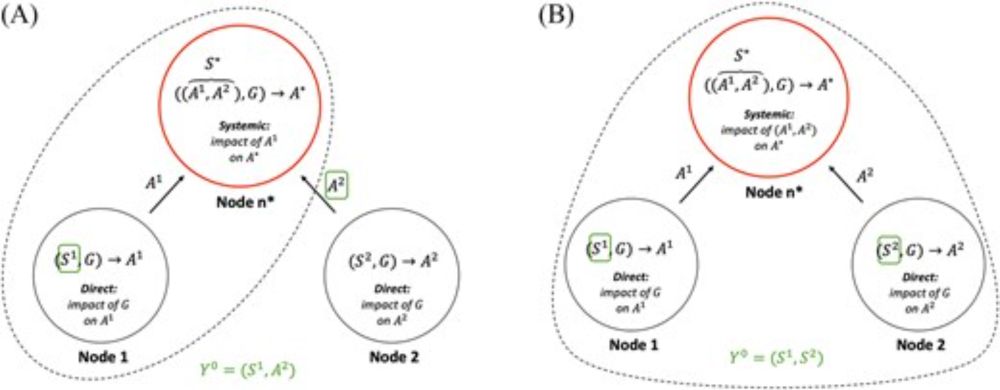
Alex Imas
@aleximas.bsky.social
Economics + Applied AI, Prof at University of Chicago Booth School of Business. Formerly: Carnegie Mellon, UCSD, Northwestern.
Website: www.aleximas.com
Website: www.aleximas.com
Reposted by Alex Imas
Next was a great discussion with @aleximas.bsky.social and Richard Thaler on changing perspectives around behavioral economics anomalies at the Julis-Rabinowitz Center for Public Policy & Finance www.youtube.com/watch?v=7v8O... (6/7)

Alex Imas and Richard Thaler on Behavioral Economics Anomalies: Then and Now
YouTube video by Markus' Academy
www.youtube.com
October 10, 2025 at 2:53 AM
Next was a great discussion with @aleximas.bsky.social and Richard Thaler on changing perspectives around behavioral economics anomalies at the Julis-Rabinowitz Center for Public Policy & Finance www.youtube.com/watch?v=7v8O... (6/7)
Probably longer than you need, but Richard Thaler and I have a book coming out trying to do just that. The chapters on Risk and Utility are especially pertinent: a.co/d/4HpJfEt
Amazon.com
a.co
September 21, 2025 at 6:37 PM
Probably longer than you need, but Richard Thaler and I have a book coming out trying to do just that. The chapters on Risk and Utility are especially pertinent: a.co/d/4HpJfEt
Reposted by Alex Imas
#QJE Aug 2025, #2, “Systemic Discrimination: Theory and Measurement,” by Bohren, Hull (@instrumenthull.bsky.social), and Imas (@aleximas.bsky.social): doi.org/10.1093/qje/...

Systemic Discrimination: Theory and Measurement*
Abstract. Economists often measure discrimination as disparities arising from the direct effects of group identity. We develop new tools to model and measu
doi.org
July 14, 2025 at 3:06 PM
#QJE Aug 2025, #2, “Systemic Discrimination: Theory and Measurement,” by Bohren, Hull (@instrumenthull.bsky.social), and Imas (@aleximas.bsky.social): doi.org/10.1093/qje/...
Reposted by Alex Imas
Update on the paper: www.wsj.com/tech/ai/mit-...

MIT Says It No Longer Stands Behind Student’s AI Research Paper
The university said it has no confidence in a widely circulated paper by an economics graduate student.
www.wsj.com
May 16, 2025 at 4:22 PM
Update on the paper: www.wsj.com/tech/ai/mit-...
Yeah that’d be nice but it’s hard for me to think about an environment like that. I think in coding it’s likely smaller but not opposite direction.
April 30, 2025 at 12:51 PM
Yeah that’d be nice but it’s hard for me to think about an environment like that. I think in coding it’s likely smaller but not opposite direction.
These results suggest that social desirability may bias estimates of AI use downwards, depending on the setting.
But that tools such as the indirect questioning technique can help.
But that tools such as the indirect questioning technique can help.
April 29, 2025 at 9:36 PM
These results suggest that social desirability may bias estimates of AI use downwards, depending on the setting.
But that tools such as the indirect questioning technique can help.
But that tools such as the indirect questioning technique can help.
Follow up surveys using both free response and direct questions revealed social desirability bias as the main reason given for the own-other gap. Specifically, the gap was attributed to a reluctance to report one's own AI use rather than an inflation of others' use.

April 29, 2025 at 9:36 PM
Follow up surveys using both free response and direct questions revealed social desirability bias as the main reason given for the own-other gap. Specifically, the gap was attributed to a reluctance to report one's own AI use rather than an inflation of others' use.
On extent of use, majority of students reported using AI 0-1 days a week, while the majority of their friends used AI 4-5 days a week.

April 29, 2025 at 9:36 PM
On extent of use, majority of students reported using AI 0-1 days a week, while the majority of their friends used AI 4-5 days a week.
Results were striking, while ~60% of people reported using AI at all themselves, they reported that ~90% of their friends used AI.
The most common response for own use was "not at all", while the most common response for others' use was "a moderate amount" followed by "a lot".
The most common response for own use was "not at all", while the most common response for others' use was "a moderate amount" followed by "a lot".

April 29, 2025 at 9:36 PM
Results were striking, while ~60% of people reported using AI at all themselves, they reported that ~90% of their friends used AI.
The most common response for own use was "not at all", while the most common response for others' use was "a moderate amount" followed by "a lot".
The most common response for own use was "not at all", while the most common response for others' use was "a moderate amount" followed by "a lot".
We employed standard indirect questioning technique from psych to overcome social desirability bias:
Instead of asking about one's own AI use, ask about AI use of friends in one's social circle...
Instead of asking about one's own AI use, ask about AI use of friends in one's social circle...
April 29, 2025 at 9:36 PM
We employed standard indirect questioning technique from psych to overcome social desirability bias:
Instead of asking about one's own AI use, ask about AI use of friends in one's social circle...
Instead of asking about one's own AI use, ask about AI use of friends in one's social circle...

